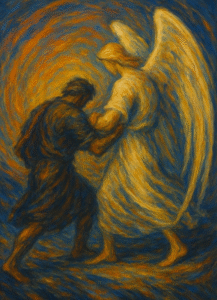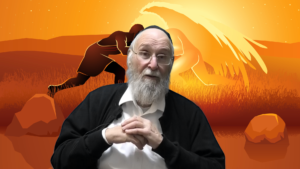Simple Acts
Rebbe Nachman always taught his students that their main focus in prayer should be on the straightforward meaning of the words. Even those who studied Kabbalah were discouraged from veering from the plain meaning of the prayers during the act of prayer itself.
When asked by an advanced student what particular meditation he should have in mind when saying a particular Divine Name, Rebbe Nachman wondered aloud, “‘God’ is not enough for you?
This was Rebbe Nachman’s approach to prayer, and also to mitzvot in general. To act with directness and simplicity, to pray and carry out mitzvot purely as a means of fulfilling God’s will.
When Rebbe Nachman was a young child and found himself gifted with a coin, he would hurry to change it into smaller coins, into pennies. He would then steal into the synagogue—sometimes even though the window—so that no one would see him. Quietly and stealthily, he would take out a Shaarey Tzion prayerbook, which included all kinds of additional prayers and supplications for different times and events, and very sweetly recite the LeShem Yichud prayer that is said by some prior to performing a mitzvah. Making sure he was not being observed, he would then sidle over to the charity box and deposit one penny.
As soon as he had dropped the coin into the box, he immediately went back to his Shaarey Tzion prayerbook, recited the LeShem Yichud, and went to give another penny to charity. He did this again and again, with no less enthusiasm each time, until every single coin had found its way into the charity box.
Rebbe Nachman knew the value of every mitzvah-act, and he took this outlook with him as he grew: to invest in the simple acts, and to do as many of them as possible.
Similarly, Rebbe Nachman encouraged his students to sing all of the Shabbat songs at the meals “like simple Jews do,” and not to feel that it was somehow a waste of time that could be better spent some other way. “Singing all of the Shabbat songs saves one’s children from following the path away from Yiddishkeit! We sing from the simple joy of being Jewish!”
Based on Or HaOrot I, pp. 115-117
- 0 comment






















